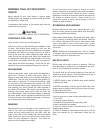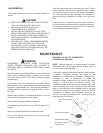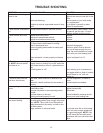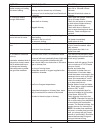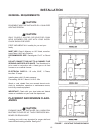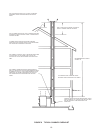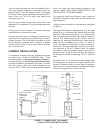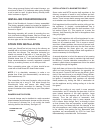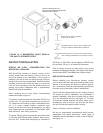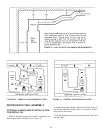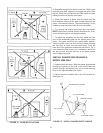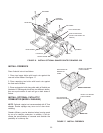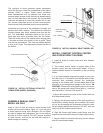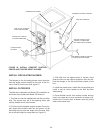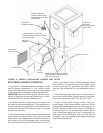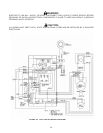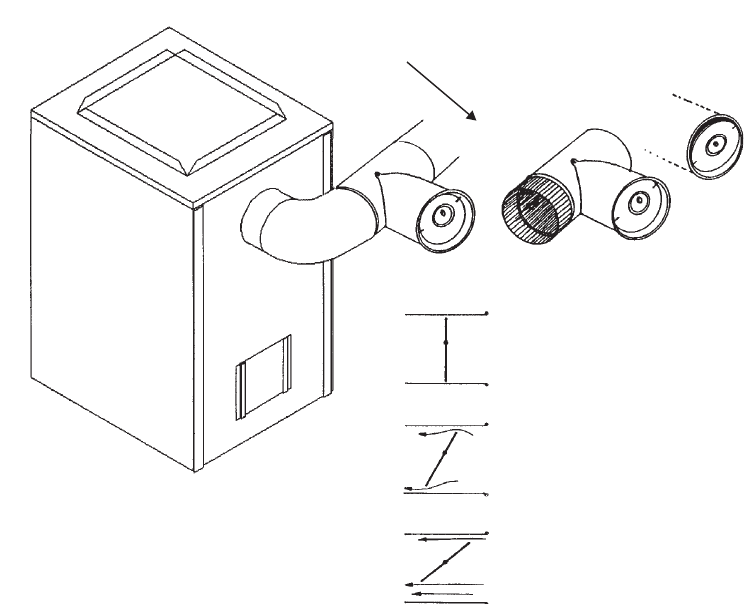
19
FIGURE 10 A BAROMETRIC DRAFT REGULA
-
TOR AND ITS INTENDED EFFECT
With no draft in chimney, regulator
is closed, no air gets in.
Moderate suction in chimney pulls regulator open
enough to maintain desired draft for appliance.
Excessive suction in chimney pulls regulator further
open, allowing substantial air into chimney connector.
MANUAL DAMPER MAY BE
INSTALLED BETWEEN BAROMETRIC
DAMPER AND CHIMNEY
AIR DUCT INSTALLATION
SPECIAL AIR FLOW CONSIDERATIONS FOR
WOOD/COAL FURNACES
With Wood/Coal furnaces, a special concern is pre-
venting wood joists and flooring close to the hot air
ducts and plenum from overheating. A fire hazard is
created by the hot air flow circulating through ducts not
designed for such high temperatures. Most Wood/Coal
furnaces produce much hotter air than oil or gas fired
units. So most clearances from the existing ducts and
plenum are usually inadequate with a supplemental
Wood/Coal furnace installation.
When installing the air duct, follow recommended
clearances shown in figure 11.
The plenum on the Woodchuck should be 20"x23" and
no less than 18" high while maintaining a minimum of
18" clearance to the ceiling or other combustible mate
-
rial. In a power outage situation, excessive heat
buildup at the plenum top may be dangerous, so make
sure clearances are maintained. For the Model 4000
allow at least 4" from ceiling to plenum.
The ducts, fittings, grilles and registers should be sized
so that the total external static pressure does not ex
-
ceed .02 W.C. inches while developing air velocities of
600 ft/min to 1000 ft/min at the registers. NEVER sup-
ply less than 150 sq. in. of heated air outlet area.
Cold air returns must be at least equal in size to the
heated air outlets and preferably 10% larger. Every Wood-
chuck furnace MUST be installed with a cold air return.
ADD-ON INSTALLATIONS
Before installing your Woodchuck furnace, consult
your furnace man and local state building codes to de
-
termine if your furnace will accept an add-on applica
-
tion. Some small furnaces and especially counter-flow
furnaces may not be used in add-on installations.
Once it has been determined that your existing furnace
will accept an add-on installation, we recommend a
parallel installation, with direct (ducted) feed of return
air to the Wood/Coal furnace, see figure 12. The back
flow prevent damper assures that when either unit is
operating by itself, the hot air will flow into the home,
and not flow back through the other furnace.
Figure 13 shows a central installation.
We do not recommend supplemental wood furnace
installations with series connection. These types of
installation are not advisable in spite of their simplicity,
see figure 14.



